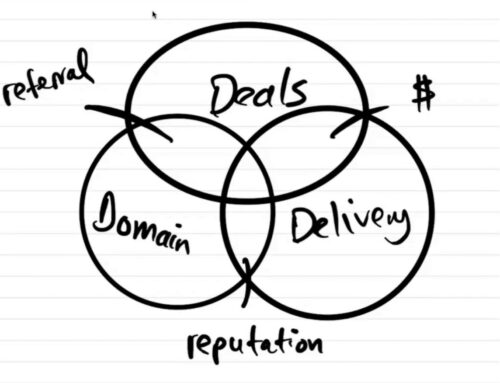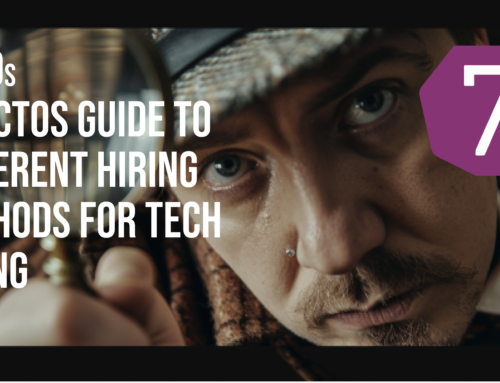How to Evolve With Market Changes, with Benji Koltai
The market can change in the blink of an eye so how to evolve with market changes is a valuable tool to have in your repertoire. Our guest today has done just that and he’s here to share his wisdom.
Benji Koltai is the CTO of Galley Solutions, a company that only exists because of what he learned from previous failures. Hear how it all began and how to evolve with market changes like Benji when you listen to this episode of CTO Studio.
In this episode you’ll hear:
- What are ghost restaurants?
- Why is the airline industry a huge food industry?
- Why coming up with an idea and coding it is only 10% of the pie.
- Was it counter-intuitive to leave Silicon Valley for San Diego?
- When should you be hiring and when should you be outsourcing?
- And so much more!
More About CTO Studio
Benji Koltai was born in Los Angeles, and moved to Boston for school for 4 years. While in college, he had a summer internship with a company called Box. That same company hired him after college so he moved to San Francisco to take a job as an entry-level software engineer.
Initially when he joined Box full-time, he started out on the front end team before moving to the core and frameworks team where they did custom PHP frameworking and the like. After some time with Box, he decided he wanted to join a smaller start-up. By the time Benji joined the team at Sprig, Box had 200+ engineers! In comparison, he was the third engineer hired by Sprig.
While his time at Sprig provided him with great experience and was the environment he was looking for, the company was only in existence for another two years after he came onboard.
I asked him to go into that experience in more detail – what is like to be a part of a dying company? Benji tells us the first moment he realized something might not be working out. Everything was on demand at this point, it was the boom of that trend especially in Silicon Valley.
The market shifted from growth-centric to being focused on the all-important unit economics. It no longer became important what your growth was, but whether your unit economics made sense. Did you make a profit every time you sold a single unit – were you making money or losing money?
That was ultimately the end of Sprig, and other on-demand companies. They ultimately shut down not because they had run out of money, but because they were not going to have enough gas in the tank to figure it out.
Plus they were trying to solve two difficult problems, one of which was being solved by Uber and Postmates and the other problem of ghost restaurants (the back house of the restaurant without the front of the house).
Today he’s focused on building technology for those types of operations: the places that will be back of house heavy without the complexity of the front house operations as a restaurant. His tech is aimed at helping these organizations realize economies of scale of the new type of food: the ghost restaurant, a ceilingless restaurant with limitless capacity.
His company is called Galley Solutions, they work with anyone who has a recipe and they want to scale it without doing the math. It’s a platform that stores all the core data of a restaurant or anyone else who has recipes they are executing on a regular basis.
Galley Solutions stores that core data and then builds out software-supported workflows, and AI support to help the recipe holder purchase more intelligently and help that person get closer to purchasing the exact right number of each ingredient to minimize waste and spoilage.
On today’s edition of CTO Studio, we also discuss the future of this industry, where he sees it going and what it’s been like to found this company. Benji is the CTO of Galley Solutions and is one of the founders. He also does a lot of coding, using Javascript front end to back end. He uses Node for back end and React for front end.
Currently for in-house basics Benji uses autocomplete, his ML is very far from where it will be when he’s finished. The product is early (as of this recording) and he’s still trying to get the core workflows down before he builds the secondary workflows. He’s spending a lot of time trying to dial in the UI and the user experience. His thesis is that in order to have strong core data users need to want to use the app and find joy and value in using the app.
With that in mind, he’s trying to build an experience from the users’ experience in terms of putting the data in and maintaining that data, that’s where he’s been focusing his efforts so far. The user in this case is anyone who is part of the daily back of house operations of the food organization (this could be a sous chef, a purchaser, the chef, etc.)
We also talk about who is adopting his technology, who his co-founder is and what is their go-to market plan; you’ll hear Benji discuss those topics and more on today’s CTO Studio!
Episode Resources:
Share This Story, Choose Your Platform!
Related Podcasts




